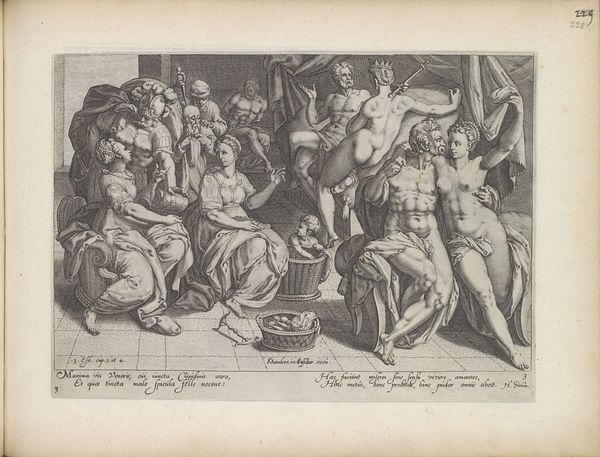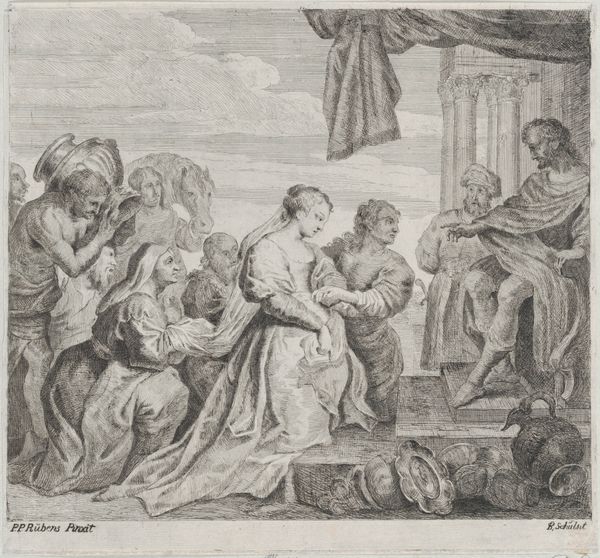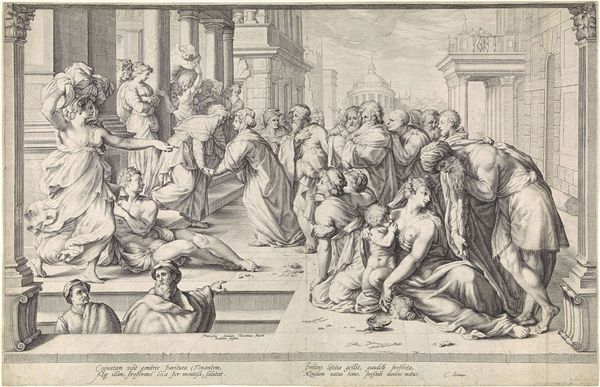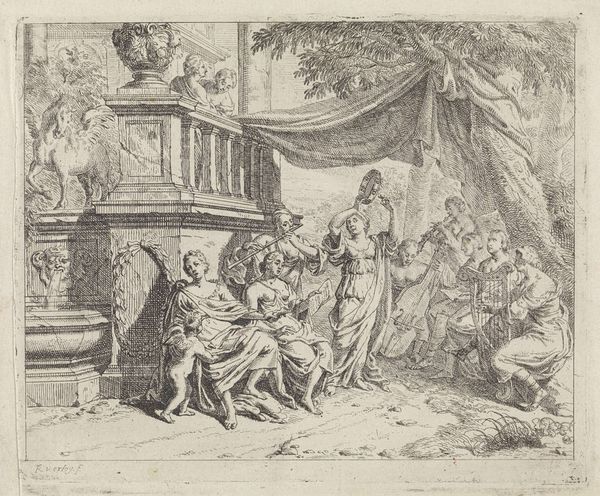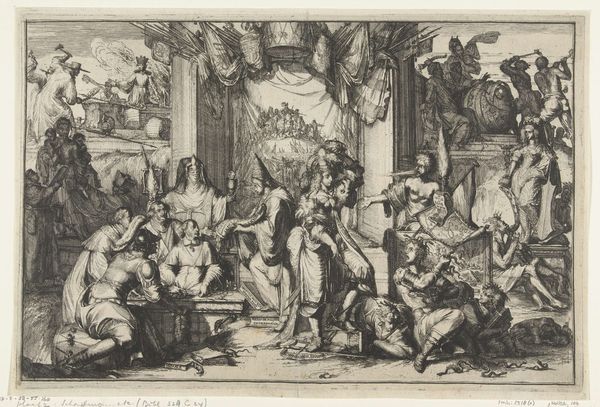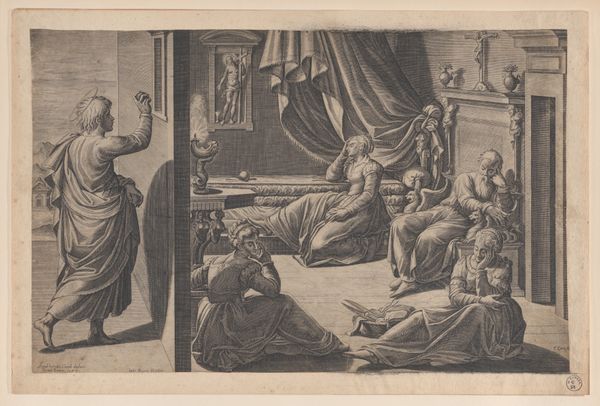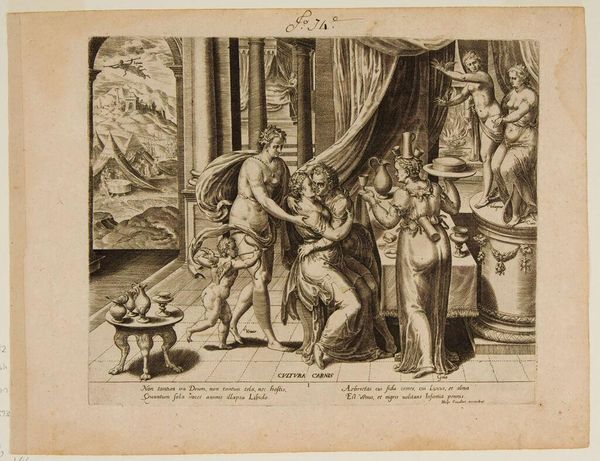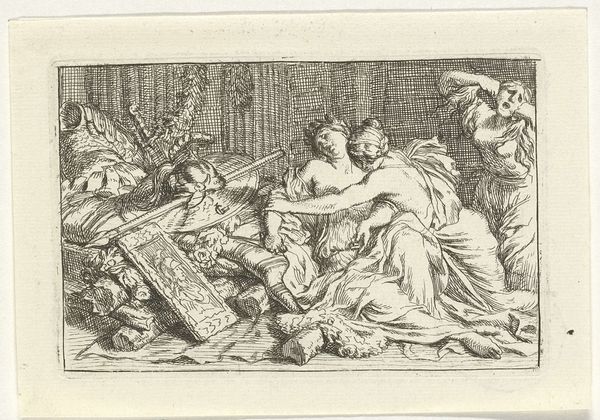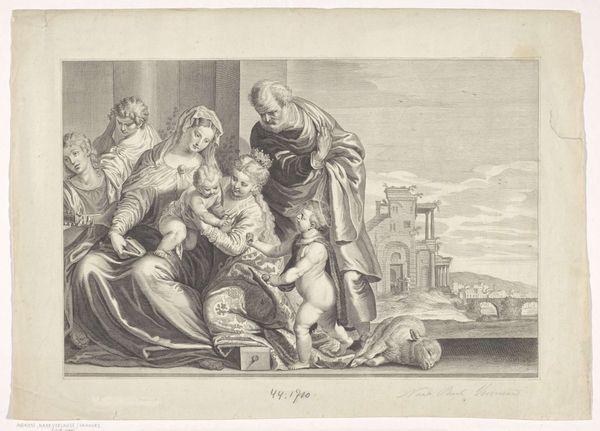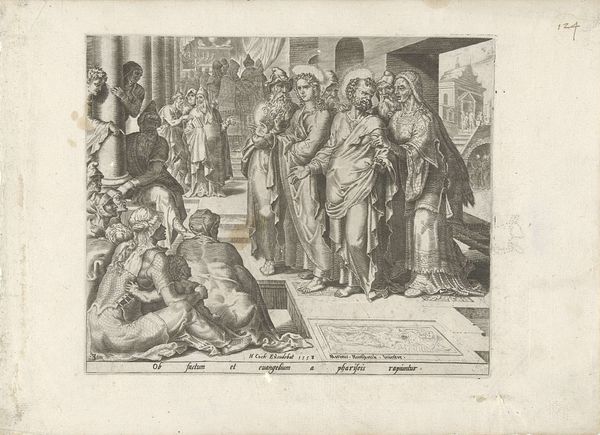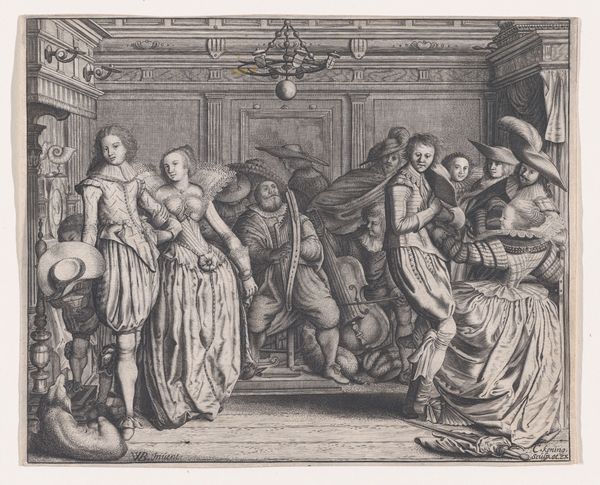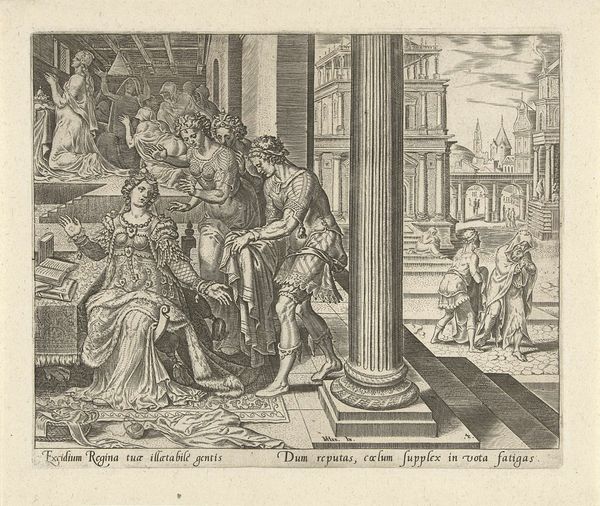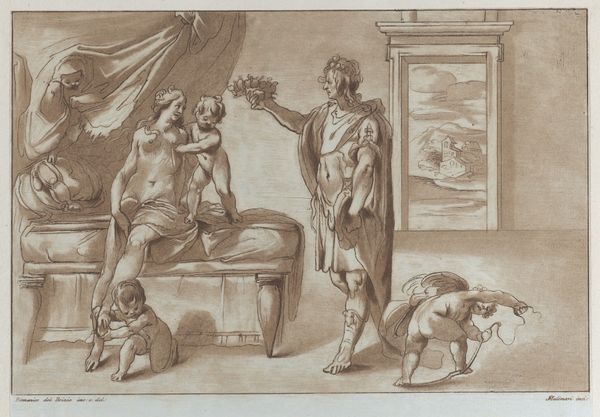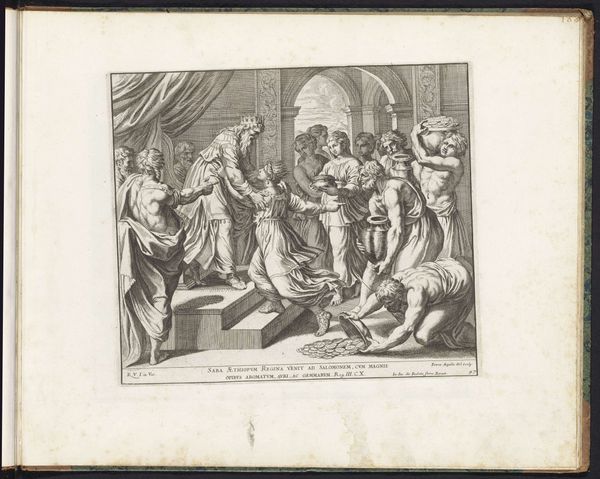
#
aged paper
#
toned paper
#
light pencil work
#
pencil sketch
#
personal sketchbook
#
pen-ink sketch
#
pen work
#
sketchbook drawing
#
sketchbook art
#
pencil art
Dimensions: height 217 mm, width 292 mm
Copyright: Rijks Museum: Open Domain
Bartholomeus Willemsz. Dolendo created this engraving, "Heilige Familie," using a technique that democratized image production in the 16th and 17th centuries. Engraving involves meticulously incising a design into a metal plate, usually copper, with a tool called a burin. The plate is then inked, and the surface wiped clean, leaving ink only in the incised lines. When pressed onto paper, it creates a precise, detailed image. The sharpness and clarity of the lines you see here are characteristic of this process. Engraving was essential to the rise of print culture, making images accessible to a wider audience. Think of it as the social media of its day. Dolendo’s skill wasn't just artistic; it was a craft, requiring technical expertise and physical labor. The circulation of these prints allowed for the widespread dissemination of religious and secular ideas, influencing everything from artistic styles to political discourse. It’s a reminder that art doesn’t just reflect society, it actively shapes it.
Comments
No comments
Be the first to comment and join the conversation on the ultimate creative platform.
